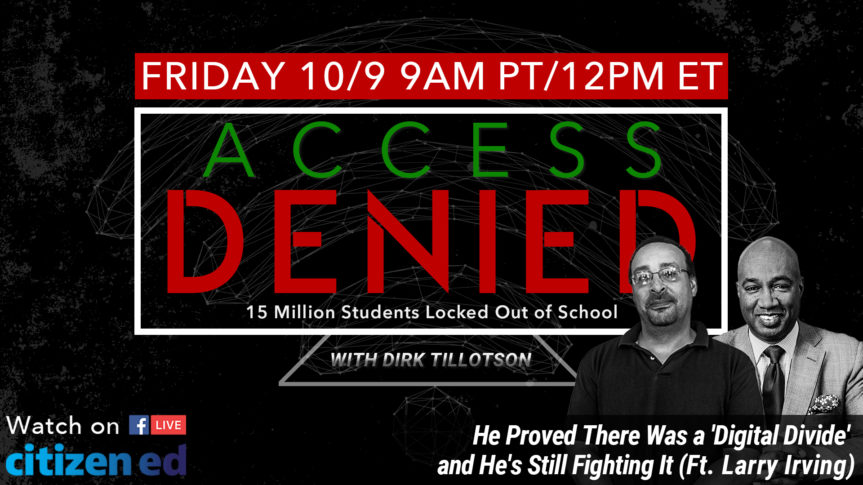Before Larry Irving’s research there was no widely accepted “digital divide” and no effort to systematically address it. And beyond seeing the problems he led efforts to remediate it, serving during both the Clinton and Obama administrations, and earning a spot in the Internet Hall of Fame, as it’s first Black member.
Join us tomorrow on Access Denied at 9 am, or watch the recording, to hear from Larry about the past and also our possible futures for digital inclusion. It will be an amazing show.
Hall of Fame Credentials
This is from his Internet Hall of Fame Bio
“As the assistant secretary of commerce for communications and information and administrator of the National Telecommunications and Information Administration (NTIA) during the Clinton Administration, Irving helped establish some of the earliest and most foundational U.S. domestic and international Internet policies, including those supporting universal Internet access, private investment, competition, open access and “light touch” regulation…
He subsequently commissioned a comprehensive Census Bureau survey that quantified for the first time the U.S. communities and populations that didn’t have Internet access, and diagnosed some of the causes. This research was documented in a seminal series of reports he co-authored, Falling Through the Net.
This research showed that Americans most at-risk for access inequity were communities that couldn’t afford to fall further behind, including the following: rural; low-income; single parents; the elderly; ESL speakers; and others who were otherwise economically or educationally disadvantaged, or geographically distant.
Irving’s data helped provide support for legislative initiatives such as the E-Rate program and, in conjunction with NTIA’s Telecommunications and Information Infrastructure Assistance Program (TIIAP), it also demonstrated the growing importance of the Internet for all communities. TIIAP connected schools, libraries, hospitals and other public access institutions where at-risk communities could access the web for free.
But Irving didn’t stop at connectivity. He understood that access alone wouldn’t help at-risk communities realize the Internet’s full potential: the NTIA also made provisions to provide hardware and training for Internet usage, and support the creation of digital content relevant to those communities.”
So he did the first study on the digital divide, worked on the first legislation to address it, and continued to build on that work in ever expanding ways.
On Friday 10/9 you can hear from Larry, on the past developments, and even more importantly the future or possible futures of the digital inclusion, and how we can make #internetforall a reality—please join us.

